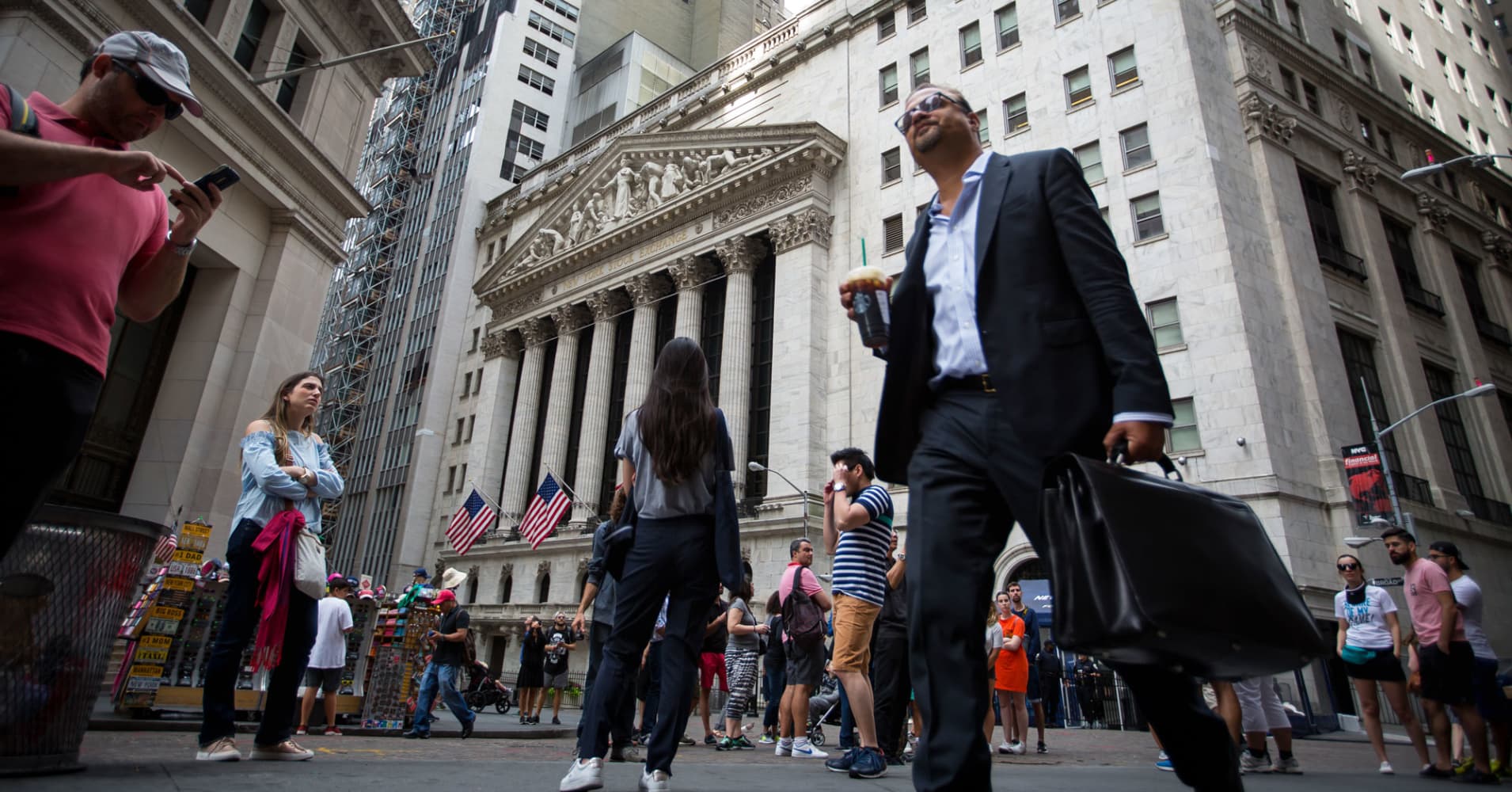
Morgan Stanley has two suggestions for investors as the year comes to a close: "Don't buy the dip" and "This is not the place to be selling."
Traders' harsh response to the interest rate policy laid out by the Federal Reserve on Wednesday has brought major U.S. stock markets to their knees, but the bank's chief U.S. equity strategist, Michael Wilson, told CNBC there is no "magic potion" and the Fed is "doing their job."
"I don't think the Fed is ignoring what's going on in the market ... [or] what's going on in the economy," Wilson said.
Wilson, who predicted the brutal October sell-off, has been warning of a "rolling bear market" — which rotates from one sector to another — for months now. He said it is a cyclical one, which tends to last a few months to a few years, not a secular one, which can stretch 10 to 20 years.
On Thursday, the Dow Jones Industrial Average fell 464.06 points to close at 22,859.60 and the S&P 500 dipped 1.5 percent to finish at 2,467.41. Meanwhile, the Nasdaq Composite briefly dipped into bear market territory, thanks to big losses in Apple and Amazon.
"I would argue most institutional managers have been trying to buy the dip to make up their year and they lost it every turn because it's not a buy-the-dip type of market," he explained on "Fast Money Half-Time Report." "They're treating a bear market like a bull market."
It is also too late to sell, Wilson said. Those opportunities came in January and in the summer, he noted.
As the economy gets closer to the end of the cycle, growth will slow down, Wilson said, and companies will adjust to "a drop-off in economic data in January." He expects the global economy will bottom out by the end of the second quarter in 2019 and that investors can "pick and choose through the rubble" to find buying opportunities.
But stay away from software stocks, which have been underperforming, Wilson suggested. Look past the S&P 500, also, and watch indicators like cyclical versus defensive stock instead, he added.
"We think the opportunities are actually more in the places that got hit first and hardest, like emerging markets [and] like cyclical stocks."
from Top News & Analysis https://ift.tt/2QMzXzP
No comments:
Post a Comment